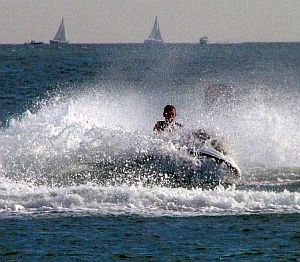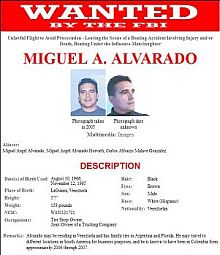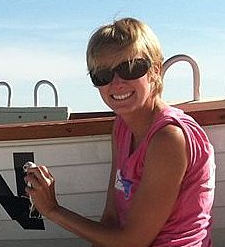William R. Sawyer, Ph.D., Toxicologist
- Diplomate, American Board of Forensic Medicine
- Diplomate, American Board of Forensic Examiners
|
| About Us
TCAS, LLC, provides a wide range of professional services including review of chemical, alcohol, pharmaceutical or radiological exposures within civil and criminal litigation matters. Dr. Sawyer has considerable expertise in matters pertaining to alcohol intoxication assessment, intentional poisoning homicides, occupational and community exposures to carcinogens, medical malpractice involving pharmaceuticals, pyrolysis products, heavy metals, organic chemicals, dioxins and drugs of abuse. Forensic toxicology and toxic exposure investigations include analytical protocol and referral of autopsy material for analyses. Environmental and occupational health risk assessments include site-specific assessments, dose measurement and causation determination. Final work products include scientific method references, method validation, forensic chain-of-custody and written reports. Reports and expert witness testimony have been provided to multiple clients in over 30 states.
|
| Please Note
We routinely work throughout North America from the Virgin Islands and the Bahamas to Alaska and have offices in the states of New York and Florida.
|
| Contact Us
Toxicology Consultants & Assessment Specialists, LLC
6450 Pine Avenue
Sanibel, Florida 33957
29 Fennell Street
Skaneateles, New York 13152
FL: 239-472-2436
NY: 315-685-2345
Toll free (U.S. & Canada):
800-308-0080
|
|
American Board of
Forensic Medicine
|
|
Issue No. 6
In this issue: Alcohol Intoxication
E-Newsletter Introduction and Invitation
Welcome to the latest edition in our new series of short, educational summaries of forensic toxicology matters taken from actual TCAS, LLC, cases over the past 25 years. Each case summary is factual; however, identifying case information has been removed unless revealed through jury verdict reports. Although interesting to read, the purpose of these case summaries is to show how the application of toxicological principles can be used in forensic matters. On occasion, we will also be releasing summaries on new toxicological studies and regulations.
TCAS, LLC, is sending this newsletter to all our past and present clients with the hope that it is of value in their professional endeavors.
In the event you have an interesting case you would like to discuss, please feel free to call or email us for a prompt, confidential teleconference.
Sincerely,
Dr. Sawyer
|
Alcohol Intoxication Leads to
Fatal Boating Accident
This case study summarizes the events leading up to and following a fatal boating accident on Florida's inter-coastal waterway. It illustrates the role of weight-of-evidence (WOE) in an alcoholic impairment assessment and demonstrates how behavior and judgment on the part of the defendant can be considered as evidential in a toxicological analysis.
Fatal Boating Accident Summary
A man was operating a 29-foot center console fishing boat equipped with twin 250 hp engines in the inter-coastal waterway near the mouth of John's Pass in Madeira Beach, Florida, with two passengers on board. Prior to the accident, the man had grounded his boat deeply onto a known sandbar and requested assistance from "Tow Boat U.S." After a tow vessel had arrived and the boat had been freed, the captain noted that the man appeared to be operating his boat unsafely and erratically. Shortly afterward, the man entered John's Pass at a high rate of speed and collided with a slow-moving personal watercraft (PWC) carrying two passengers. Both passengers were dismembered and killed.

Defendant collided with a PWC at a high rate of speed.
The man did not stop after the impact but instead continued to travel west until another vessel came alongside his boat and ordered him to stop. He anchored his boat and made no effort to assist the injured passengers in the water stating that he was unable to maneuver due to the right engine being damaged.
Witnesses stated that a woman on the boat was seen dumping something out of a bottle near the back of the boat while the other two were seen scurrying around in the boat. Several witnesses also reported observing the man drinking multiple bottles of water immediately following the accident but prior to the arrival of law enforcement personnel.
Upon arrival at the accident scene, the attending officer detected an alcoholic odor emanating from the man's breath as well as bloodshot eyes and slurred speech. An inspection of the boat's cooler revealed 11 empty beer bottles. The attending officer further noted that the man's statements with respect to pre- and post-accident events were inconsistent with statements from witnesses. These facts collectively constituted probable cause to suspect that the man was under the influence of alcohol at the time of the crash. The man refused to perform any field sobriety tasks but consented to blood draws (which were obtained two and three hours after the accident). The man subsequently stated that he had consumed "two or three beers" throughout the day and that the last was consumed two to three hours prior to the accident. The man was taken into custody and subsequently charged with DWI and leaving the scene of an accident.
Toxicological Assessment of Contributing FactorsDr. Sawyer acquired and reviewed case records and prepared retrograde blood alcohol concentration (BAC) measurements to the time of the accident. He also reviewed affidavits and statements of witnesses pertaining to various behavioral facts with respect to potential alcoholic intoxication. These included: - Boating Accident Investigation of Florida Fish and Wildlife Conservation Commission, Division of Law Enforcement
- Pinellas County Forensic Laboratory Analyses
- Florida Department of Law Enforcement Alcohol Testing Program Blood Alcohol Analyses Affidavits
- Forensic Laboratory Request for Toxicological Analysis
- Statements and affidavits of witnesses and attending officers
- Medical examiner's postmortem reports of accident victims
Upon reviewing the pertinent events and circumstances of the case, Dr. Sawyer consulted the generally-accepted, peer-reviewed toxicological literature and compiled the evidential components and causal characterizations required to perform a toxicological assessment. Dr. Sawyer subsequently produced a written report upon which he relied during testimony before a jury. Dr. Sawyer's testimony addressed several significant lines of evidence including: - Numerous judgment defects were noted in defendant's behavior. Defendant was displaying evidence of impaired judgment and/or visual defects shortly before and after the accident.
- Grounding defendant's boat on a sandbar to the degree that a tow boat was required to extract it is highly suggestive of reckless operation. Even twin outboards totaling 500 hp could not back the boat off. This suggests an impact at a very high rate of speed. The captain of the tow boat also stated that defendant followed him recklessly at high speed following extraction from the sandbar.
- Defendant's boat was observed to be "maneuvering aggressively" toward another boat minutes before the crash. Additionally, defendant's boat maintained its speed as it approached the idle-speed PWC. This is, in itself, highly suggestive of impaired driver perception as it is always incumbent upon the pilot to avoid slower craft in convergence situations regardless of size.
- Defendant's boat continued to travel at the same rate of speed after impact until told to stop by another vessel. Although it was noted that defendant's boat was equipped with twin engines, the defendant claimed the second engine had been damaged. However, this proved to be untrue. Nor would it have mattered as defendant continued to leave the accident scene using the other engine until ordered to stop. All of this strongly suggests impairment of both perception and judgment.
- Defendant's boat crossed into the channel at 25-30 mph even as the PWC approached from the right. This is a clear violation of power boat navigation rules and suggests a lack of awareness manifesting as a callous disregard for the safety of others.
- The attending officer noted in his report that there was no proper look-out on defendant's vessel as required by the Coast Guard Inland Navigational Rule #5. Additionally, defendant violated Coast Guard Inland Navigational Rule #15 which states: "When two power-driven vessels are crossing so as to involve risk of collision, the vessel which has the other on his starboard (right) side shall keep out of the way and shall avoid crossing ahead of the other vessel."
Blood Alcohol CalculationsThe objective scientific evidence revealed two post-crash blood alcohol levels (0.0765% at 2 hrs and 0.0556% at 3 hrs). Based upon generally-accepted metabolic rates, the degree of ethanol loss could be calculated. Dr. Sawyer determined that defendant eliminated 15,039 mg of ethanol between the time of the accident and the first blood draw and a total of 21,660 mg between the time of the accident and the second blood draw. Both blood tests yielded an extrapolated (time of accident) result of 0.11 g/dL (0.11%) BAC to 0.12 g/dL (0.12%) BAC. Calculation of the previous blood alcohol concentration is reliable and generally accepted when delayed absorption of alcohol from the stomach contents can be ruled out. In this matter, defendant stated that he had not consumed any alcoholic beverages for "approximately two to three hours prior to the accident." If true, this is outside the delayed-absorption range. Thus, delayed absorption could not have occurred following the accident. A blood-alcohol concentration of 0.09% to 0.25% placed defendant's intoxication level in the "Marked Intoxication" range, a degree of intoxication which is characterized by: - Loss of critical judgment
- Decreased sensory response
- Emotional instability
- Decreased inhibitions
- Impaired memory and comprehension
- Increased reaction time
- Muscular incoordination
Summary
Based on the totality of available information, the blood analyses performed by law enforcement and the weight-of-evidence relating to defendant's conduct, Dr. Sawyer was able to determine to within a reasonable degree of toxicological certainty that defendant was legally intoxicated at the time of the accident and that defendant's intoxication substantially contributed to the fatal boating accident. Defendant's blood alcohol level (BAC) of approximately 0.11% (0.11 g/dL) at the time of the accident placed his intoxication level in the "Marked Intoxication" range. This characterization was consistent with defendant's unusual behaviors as noted by police and witnesses. Coincidentally, Dr. Sawyer is a highly experienced navigator within Florida's inter-coastal waterways and operates a boat similar to that of defendant. Dr. Sawyer noted in his report that these are potentially dangerous waters and that all boaters must constantly be on guard against hidden shallows, sandbars, manatees, underwater obstructions and (in particular) other boats. Defendant clearly failed to demonstrate the prudent and responsible degree of attention required to safely navigate these waters.
 Defendant was charged with leaving the scene of a boating accident involving injury and/or death (two counts) and boating under the influence-manslaughter (two counts) by the Circuit Court for the Sixth Judicial Circuit of Florida. State warrants were issued for his arrest but defendant had fled the state. A federal arrest warrant was issued by U.S. District Court of Florida after defendant was charged federally with unlawful flight to avoid prosecution. He is wanted by the FBI at the time of this writing. Postscript A civil jury found defendant and his insurance carrier liable for damages and awarded approximately 1.5 million dollars and an additional $500,000 in punitive damages to the families of the decedents.
|
Meet the Firm
 Dr. William Sawyer Dr. William Sawyer is a professional toxicologist with a doctorate in toxicology from Indiana University School of Medicine. He is a diplomate of the American Board of Forensic Medicine and has more than 26 years of extensive experience in public health and forensic toxicology with specialized expertise in causation analyses (for plaintiff and defense) involving alcohol, drugs-of-abuse, pharmaceuticals, herbal products, dioxins, solvents, heavy metals, crude oil, radionuclides/NORM and other substances. Dr. Sawyer has testified at trial and/or deposition in more than 30 states including NY, MA, CT, PA, RI, NH, DE, NJ, WV, VA, NC, SC, GA, FL, AL, MS, LA, AR, MO, KY, IN, IL, WI, MI, OH, MN, MT, WA, CA, TX and OK.
As a skilled scientist and communicator in the area of toxic tort, Dr. Sawyer provides services to governmental agencies, corporations and select plaintiffs or defendants. Dr. Sawyer currently serves as the Chief Toxicologist for TCAS, LLC, and also has been an Assistant Professor (adjunct) for 23 years with the Department of Medicine, Upstate Medical University, Syracuse, New York. Dr. Sawyer has approximately 14 years experience as a licensed clinical and environmental laboratory director in several states.
Dr. Sawyer is a distance swimmer for the Gulf Coast Swim Team and recently completed the "Swim Around Key West" race in just under six hours. He is also a triathlete with the distinction of being a four-time Ironman. He loves to fish and SCUBA dive in northern New York State and the Gulf of Mexico.
 Jennifer Clark Jennifer Clark (Jen) began working with Dr. Sawyer in 2007 after spending the previous 18 years as a full-time mom. With a background as a legal assistant prior to the birth of her two daughters, Jen spends a considerable amount of her time performing research for active TCAS, LLC, cases. Not only does she have a special ability to ferret out information, she also has excellent grammatical skills which she applies to communications and report preparation. Jen loves a challenge and the fact that no two days at TCAS, LLC, are the same!
When not being an honorary toxicology investigator, Jen enjoys gardening, camping, reading and solving jigsaw puzzles. She is also a huge fan of the Adirondack Mountains of upstate New York and spends several weeks each summer exploring the woods and lakes with her husband, Jim, and golden retriever, Gracie.  Michelle Avis began working with Dr. Sawyer in May 2014. She is currently an M.S. candidate at the State University of New York - College of Environmental Sciences and Forestry (SUNY-ESF) focusing on Fish & Wildlife Biology and Management. Her graduate research project examines piping plover flight behavior during the breeding season. She has been working with nesting piping plovers since 2008 with several organizations including the U.S. Fish and Wildlife Service, the Massachusetts Audubon Society, and the Tuckernuck Land Trust. During the winter of 2010/2011, Michelle had the privilege of acting as a crew leader for Virginia Tech on a project assessing the impacts of the Gulf oil spill on wintering piping plovers. Because of this experience, Michelle has a special interest in environmental toxicology, examining the impacts of environmental hazards to humans and wildlife. When not spending time looking at birds, some of her favorite things in life are spending time in her garden, listening to NPR, knitting up a storm and playing her harmonica exceptionally loud!
 Carol Sawyer Carol Sawyer serves as the bookkeeper for TCAS, LLC. By training, she is a dental hygienist and graduate from Indiana University School of Dentistry. She also has prior training and work experience in an accounting firm as a file room clerk and has managed TCAS, LLC's records since its inception in 1989. Carol enjoys preparing specialty foods, volunteering in her church and community, visiting barrier island beaches, reading and just being outdoors.
Support Staff |
|